Overview
Introduction: How Long Do Huskies Live

Ever wondered, how long do Huskies live? Siberian Huskies, known for their magnetic charm, are a favorite among dog lovers globally. Their striking appearance, friendly demeanor, and thick double coat make them a sought-after breed. This healthy dog breed is not just a pet; they become integral members of families, offering companionship to individuals and joy to households.
The Allure of Siberian Huskies
Picture this: piercing blue eyes that seem to hold a world of mysteries and a thick, double coat that’s as striking as it is protective. Siberian Huskies have an undeniable allure that transcends the conventional. Their friendly nature and playful spirit make them more than just pets; they’re reliable companions for families and individuals alike.
The Curiosity Surrounding Their Lifespan
As we delve into the enchanting world of Huskies, a pivotal question arises—how long do Huskies live? This mystery often piques the interest of prospective owners, eager to understand the lifespan of these beautiful creatures. Let’s unlock the secrets behind ensuring that most Siberian Huskies enjoy a long and healthy life.
But as we open the door to the world of Huskies, a crucial question arises—how long can we expect these delightful beings to share our lives?

Understanding Average Lifespan
General Average Lifespan of Siberian Huskies
Siberian Huskies, often adored for their striking appearance and friendly nature, typically enjoy a lifespan of 12 to 15 years. It’s important to note that this is a generalization, and individual variations among these majestic dogs are to be expected.
Factors Influencing Individual Variations
Much like people, Huskies exhibit unique characteristics. Several factors, including genetics, environment, and overall health, contribute to the individual variations in their lifespan. As responsible husky owners, understanding these variables is crucial for ensuring the well-being and longevity of our furry companions.

Siberian Husky Puppies to Adulthood
Milestones in a Husky’s Life
From the enchanting moments of playful puppyhood to the majestic grace of adulthood, a Husky’s life is marked by various milestones. As husky puppies grow into adults, their energy, personality, and health needs evolve, requiring attentive care from husky owners.
Developmental Changes Affecting Longevity
Understanding the developmental changes that occur from puppyhood to adulthood is essential. Proper care during these stages, including a balanced diet, regular exercise, and preventive veterinary check-ups, can significantly impact a Husky’s overall longevity.
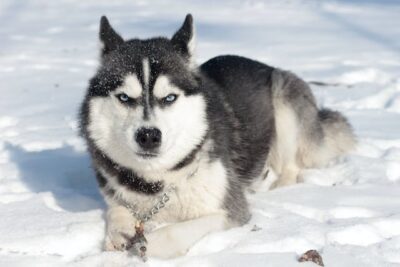
Genetics and Longevity
Role of Genetics in Determining Husky Lifespan
Genetics play a pivotal role in a Husky’s lifespan. Responsible breeding practices, including the selection of parent dogs with a clean bill of health, contribute to the development of healthier Huskies with longer life expectancies.
Breeding Considerations for Longer Husky Life Expectancy
Choosing a reputable breeder is paramount for Husky owners seeking to ensure the longevity of their pets. Responsible breeders prioritize the health and well-being of the Husky breed, taking measures to avoid genetic disorders that could impact their lifespan.
As devoted Husky owners, it’s essential to be aware of common health problems that can affect these remarkable dogs, such as the risks associated with overweight dogs. Additionally, considering spaying for female Huskies can contribute to a healthier breed population.
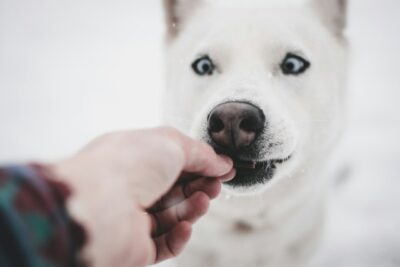
Nutritional Impact on Siberian Husky Lifespan
Importance of a Balanced Diet
Just like any living being, a balanced diet is fundamental to a Siberian Husky’s overall well-being and longevity. Husky owners play a crucial role in ensuring their beloved pets receive the nutrition necessary for a healthy life.
Specific Nutrients Promoting Longevity
Certain nutrients play a pivotal role in promoting a longer, healthier life for Siberian Huskies. Among these, omega-3 fatty acids and antioxidants stand out, contributing to various aspects of their well-being, including joint health and immune system support.

Health Factors and Common Issues
Prioritizing Husky Health: Addressing Common Concerns and Proactive Measures
Prioritizing Husky health involves addressing common concerns such as hip dysplasia and eye issues through regular veterinary check-ups and preventive measures. Proactive measures include providing a balanced diet, regular exercise, and mental stimulation to ensure your Husky remains healthy and happy.
Common Health Concerns in Huskies
Common health concerns in Huskies include hip dysplasia, which can lead to arthritis and lameness, particularly as they age. Another issue is cataracts, a clouding of the eye’s lens that can impair vision. Additionally, Huskies are prone to progressive retinal atrophy, a genetic condition that causes gradual vision loss. Regular vet check-ups and a healthy lifestyle can help manage these conditions and ensure your Husky’s well-being.
Proactive Measures for a Vibrant Life
To ensure a longer, healthier life for your Husky, adopting preventive measures is key. Regular vet check-ups, timely vaccinations, and a vigilant eye on potential health issues are proactive steps that significantly contribute to your husky’s life expectancy. Responsible owners prioritize these preventive measures, recognizing the importance of proactive care in addressing potential health concerns.
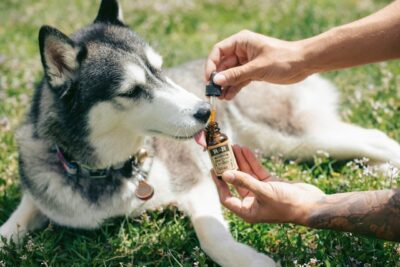
Promoting a Healthy Lifestyle for Your Husky
Maintaining a healthy breed requires attention to various aspects of your husky’s well-being. From ensuring regular vet visits and checkups to managing a healthy weight, responsible ownership plays a crucial role.
For female huskies, spaying is a vital consideration. Studies show that spayed females live longer, emphasizing the positive impact on their overall health and longevity. Alongside spaying, other factors, such as providing a good diet and engaging in regular exercise, contribute to a healthy lifestyle for your husky.
Addressing Specific Health Considerations
Being aware of common husky health problems, including genetic disorders and the risk of developing testicular cancer in unaltered males, empowers owners to take preventive action. Additionally, regular vet checkups play a crucial role in early detection and management of conditions like progressive retinal atrophy.
Nutrition and Parasite Control
Managing your husky’s food intake is essential for maintaining a healthy weight. A well-balanced diet, including quality dog food, supports their active lifestyle. In collaboration with veterinary medicine, owners can implement parasite control measures to further enhance their husky’s overall health.
In essence, fostering a healthy lifestyle for your Husky involves a holistic approach. From spaying females to monitoring their diet, regular vet visits, and preventive measures, these actions collectively contribute to a longer, happier life for your active dog—an essential member of your family, known for being among the good family dogs.
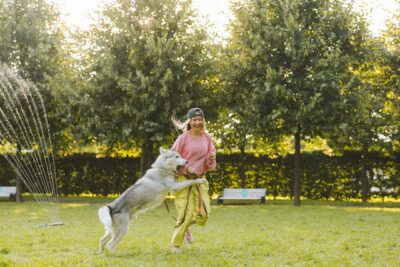
Exercise and Its Lifespan Influence
Connection Between Physical Activity and Longevity
Regular exercise is not only a joy for Huskies but also a key factor in ensuring a longer, healthier life. Exercise contributes to weight management, cardiovascular health, and mental stimulation, all essential components of a husky’s well-being.
Tailored Exercise Routines for Huskies
Understanding your Husky’s energy levels and tailoring exercise routines accordingly is crucial for their well-being. Whether it’s a playful romp in the backyard or a more structured exercise regimen, ensuring they stay active contributes to their overall health.
Environmental Factors
How Living Conditions Affect Lifespan
A comfortable and safe living environment positively impacts a Husky’s lifespan. Providing adequate shelter, a balanced diet, and regular veterinary care all contribute to their overall well-being.
Climate Considerations for Huskies
Huskies, with their thick coats, may face challenges in extreme temperatures. Climate-appropriate care, including proper hydration and shade in warmer weather, as well as protection from harsh cold conditions, is vital for their well-being.
In striving for a longer Husky life expectancy, husky owners who prioritize a healthy lifestyle, regular veterinary check-ups, and tailored care contribute to the well-being of this remarkable dog breed.
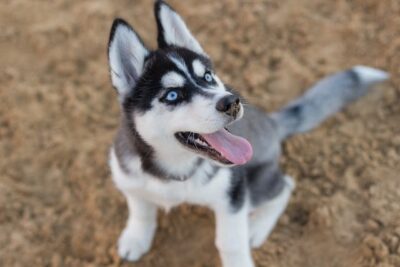
Emotional Well-being: Nurturing Your Siberian Husky’s Happiness
Understanding the emotional needs of your Siberian Husky is as crucial as addressing their physical health. These husky dogs thrive on love, attention, and a strong sense of belonging, making emotional well-being a cornerstone of their overall health.
Impact of Mental Health on the Lifespan of Your Husky
A happy, stress-free environment isn’t just a luxury—it’s a necessity for a longer, healthier life. The mental well-being of your husky puppy or working dog significantly influences their life expectancy. Creating an environment that fosters contentment contributes to their overall well-being.
Lifespan Expectations Across Breeds: Understanding Unique Traits
Comparing Siberian Huskies to other dog breeds offers valuable insights into their unique traits and potential lifespan. Each breed, including the female husky, has distinct characteristics that shape their journey. Recognizing these variations enhances your understanding of your furry friend’s life expectancy.
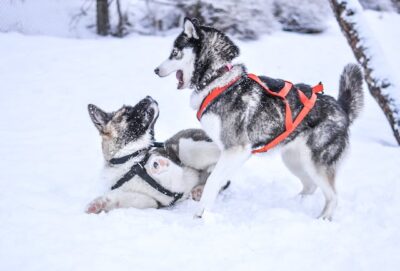
Senior Years: Navigating the Aging Process with Your Husky
As your Siberian Husky gracefully ages, being attuned to signs of aging becomes essential. Awareness of the transition into their senior years allows for proactive care tailored to their specific needs.
Special Care for Senior Huskies: Tailoring to Their Unique Needs
For senior husky dogs, tailored care becomes paramount. This includes adjusting their diet, exercise routine, and veterinary care to cater to their changing needs. Providing specialized care ensures a comfortable and happy life during their golden years.
Tips for Increasing Lifespan: Proactive Measures for a Vibrant Life
Taking proactive steps is the key to extending the lifespan of your Siberian Husky. From ensuring a nutritious diet to regular exercise, these measures form the foundation for a longer, healthier life. Consider holistic care, addressing physical, mental, and emotional aspects to create a comprehensive approach to your husky’s well-being.
In these later years, factors such as high blood pressure become more significant, emphasizing the need for regular vet checkups. Keeping an eye on canine eye registry foundation recommendations is essential for preserving your dog’s vision. By incorporating these elements, you can ensure that your senior husky enjoys their later years with vitality and joy.

Expert Insights: Enhancing the Lifespan of Your Siberian Husky
Veterinarians, with their deep understanding of Siberian Huskies, offer invaluable insights into ensuring the well-being and extending the lifespan of your beloved husky dog.
Veterinarian Opinions on Husky Lifespan: Navigating Unique Needs
Veterinarians recognize the distinctive qualities of Siberian Huskies as a healthy dog breed. Their opinions shed light on the unique needs and potential challenges faced by huskies, offering guidance for pet parents seeking to provide optimal care.
Recommendations for Optimal Care: A Holistic Approach
Expert recommendations from veterinarians encompass various facets of care, including nutrition, exercise, and the importance of regular vet checkups. This holistic approach ensures that your husky puppy or working dog thrives in every aspect of their active life.
Lifespan Calculators: Navigating Gimmicks or Guidance?
As pet parents, the allure of online lifespan calculators for Siberian Huskies is undeniable. But do these tools genuinely provide accurate predictions for your husky? Unraveling the validity and limitations of such calculators becomes essential for informed decision-making.
Factors That Shorten Lifespan: Awareness and Proactive Measures
Veterinarians emphasize the importance of awareness when it comes to potential risks that can shorten a husky’s lifespan. From genetic predispositions to environmental hazards, understanding these factors allows pet parents to take proactive measures in creating a safe and nurturing environment.
Avoiding Pitfalls for a Healthier Husky: Empowering Pet Parents
Being mindful of elements that can impact your husky’s lifespan, especially as they transition into being a senior dog, empowers pet parents. This includes considerations for older dogs, such as addressing issues like high blood pressure and staying vigilant about the canine eye registry foundation recommendations for preserving your dog’s vision.
In collaboration with veterinary expertise, pet parents can navigate the complexities of their Siberian Husky’s life expectancy and ensure a fulfilling and active life throughout their senior years.
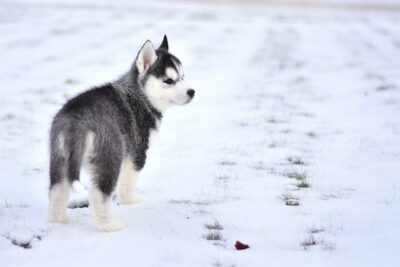
Conclusion: Unlocking the Secrets to a Long and Joyous Husky Life
In delving into the intricacies of Siberian Husky lifespan and addressing the question ‘How Long Do Huskies Live,’ our exploration reveals that a deep understanding and proactive approach to various aspects—ranging from genetics to emotional well-being—hold the key to fostering a long and joyous companionship with your beloved husky dog. Recognized as a healthy breed, these hardy dogs, whether Alaskan Huskies or the classic Siberian breed, capture the hearts of pet lovers globally.
Navigating potential challenges like hip dysplasia and ensuring the well-being of working dogs, including Alaskan Huskies, contribute to the essence of husky life. Whether they are active and vibrant in their prime or transitioning into their senior years, the commitment to their health and happiness paves the way for a pet parent to witness their Siberian Husky enjoying a long and happy life.
As we conclude this exploration, it’s evident that the bond between pet parents and their huskies extends beyond the surface—it’s a commitment to understanding, nurturing, and cherishing every moment with these hardy and lovable companions. May your journey with your Siberian Husky be filled with years of companionship, joy, and the fulfillment of providing them with the best life possible. Explore our available Husky puppies for sale in Florida and surrounding areas.
FAQs About Husky Lifespan: How Long Do Huskies Live
- Q1: How long do Huskies live on average?
- Huskies live on average between 12 to 15 years. This timeframe can be influenced by various factors such as genetics, lifestyle, and preventive care.
- Q2: Does getting a female Husky spayed impact their lifespan?
- Yes, getting a female Husky spayed can positively impact their lifespan. Studies suggest that spayed females tend to live longer, contributing to their overall health and well-being.
- Q3: What is the average lifespan of a Husky compared to other dog breeds?
- The average lifespan of a Husky, ranging from 12 to 15 years, is comparable to many other dog breeds. However, factors like being working dogs, such as the Alaskan Husky, may influence their life expectancy.
- Q4: Do Siberian Huskies live longer than other dogs?
- Siberian Huskies live within the average lifespan range for many dog breeds. Their unique traits and hardy nature make them comparable to other dogs, although individual factors play a significant role.
- Q5: Can Huskies, especially senior dogs, still pull sleds effectively?
- Yes, senior dogs like Huskies can still be effective sled pullers. While their activity levels may decrease with age, their training and health management play key roles in maintaining their capability.
- Q6: Are there genetic disorders that can affect the lifespan of Huskies?
- Yes, certain genetic disorders can impact the lifespan of Huskies. Regular vet checkups and responsible breeding practices contribute to identifying and managing these disorders.
- Q7: What is the longest living Husky on record?
- The record for the longest living Husky is not specific, as individual lifespans vary. Proper care, nutrition, and a healthy lifestyle contribute to a longer and fulfilling life for these lovable companions.
- Q8: Can Huskies be born blind, and does it affect their life expectancy?
- While it’s rare, some Huskies can be born blind. The impact on their life expectancy depends on the extent of the blindness and the supportive care provided.
- Q9: Is there a specific diet or dog food that contributes to a longer life for Huskies?
- A well-balanced and high-quality dog food is essential for Huskies’ overall health and longevity. Proper nutrition tailored to their needs promotes a healthier and longer life.
- Q10: At what years of age are Huskies considered seniors, and how does it compare to other large breed dogs?
- Huskies are generally considered senior dogs around the age of 7. This is comparable to the senior classification of many other large breed dogs. Providing appropriate care and monitoring becomes crucial during their later years.
- Q11: Do Huskies get along well with other animals?
- Huskies can get along well with other animals, but their interaction may depend on individual temperament, early socialization, and proper introductions.




